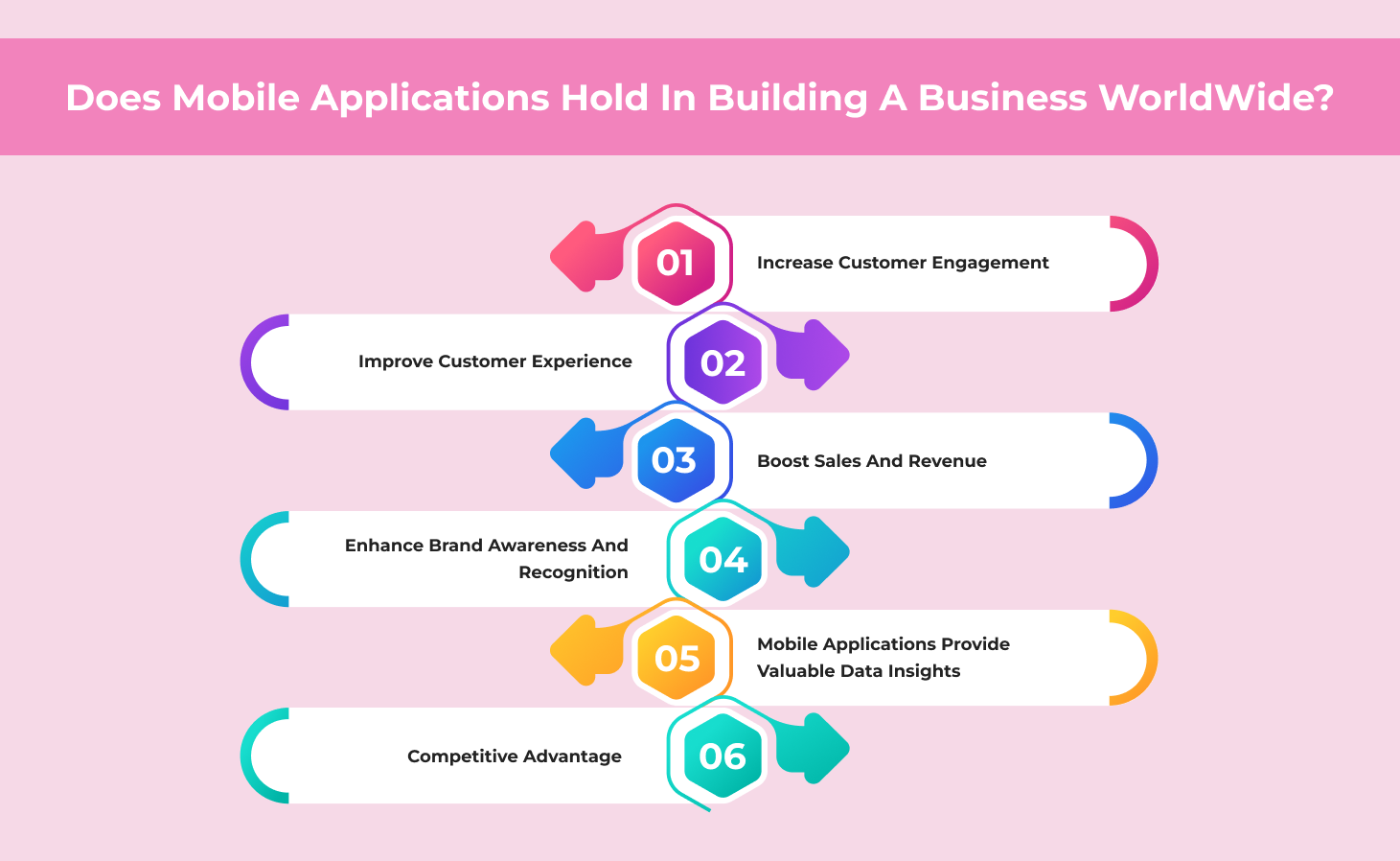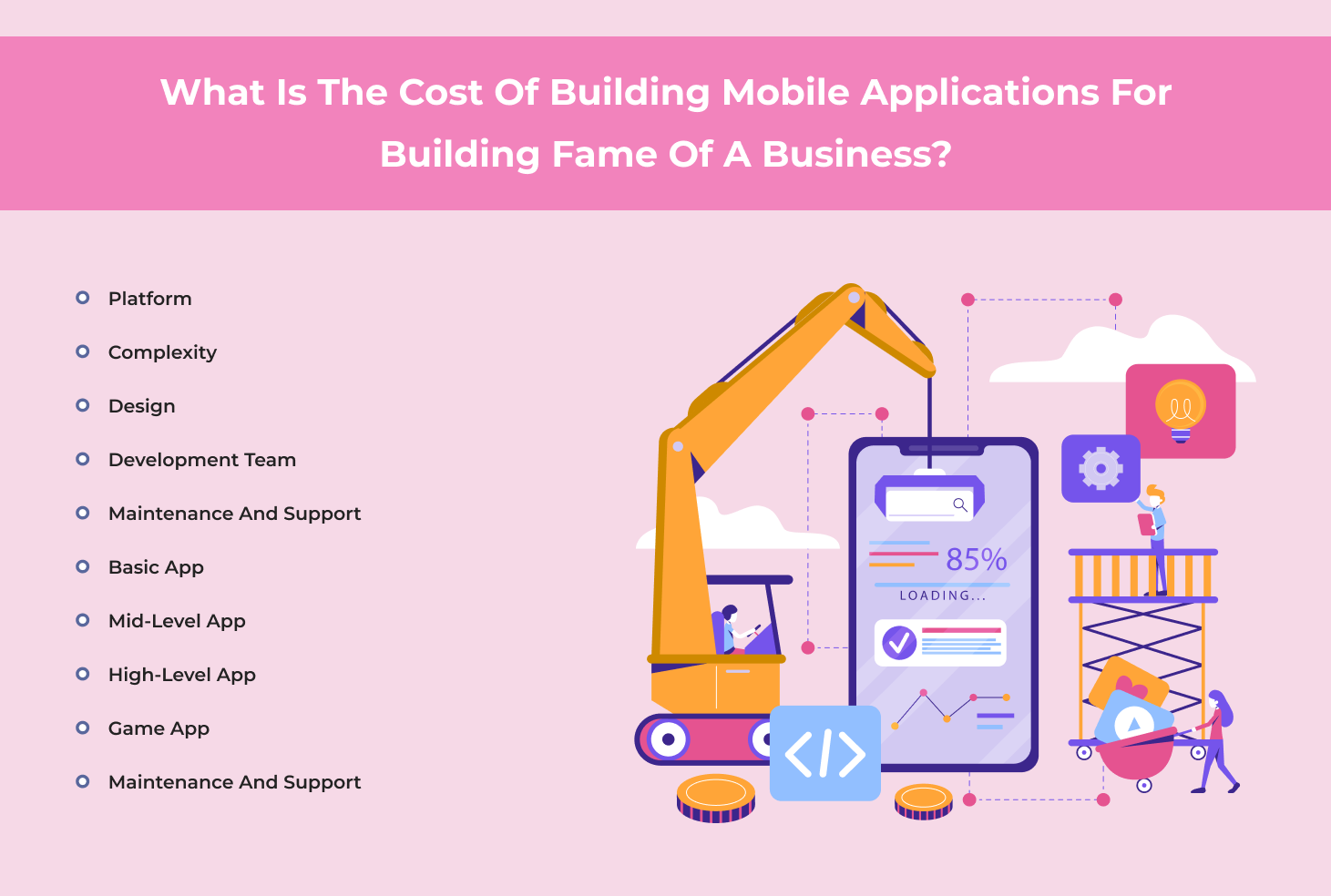Why Every Business Needs A Mobile Application?
If you’re running a business in today’s fast-paced and digitally-driven world, you need to be where your customers are. And where are they? You guessed it: on their mobile devices.
According to recent statistics, there are over 3.8 billion smartphone users worldwide, and that number is projected to reach 4.3 billion by the end of 2023. That means more than half of the world’s population is using mobile devices to connect, communicate, and consume content on the go.
So, if your business doesn’t have a mobile application yet, you’re missing out on a huge opportunity to reach and engage with your customers where they spend most of their time.
But don’t just take our word for it. In this blog post, we’ll explore the top reasons why every business needs a mobile application, backed by data, facts, and real-world examples. From boosting customer loyalty and retention to increasing sales and revenue, a mobile app can do wonders for your business, no matter what industry you’re in.
So, whether you’re a small startup or a large enterprise, it’s time to jump on the mobile bandwagon and invest in a high-quality mobile application that can take your business to the next level. Ready to learn more? Let’s dive in.

Does Mobile Applications Hold In Building A Business WorldWide?
Mobile applications have revolutionized the way we interact with our devices, with each other, and with the world around us. From social media and messaging apps to productivity and gaming apps, there’s an app for almost everything these days. And for businesses, mobile applications can be a game-changer in terms of customer engagement, loyalty, and revenue.
Here are some factors that make mobile applications in building a business worldwide important. Also, read about how you can leverage this technology to your advantage:
● Increase Customer Engagement
Mobile applications allow businesses to connect with the customers on a more personal and intimate level. Unlike websites or social media pages, mobile apps are specifically designed to cater to the needs and preferences of individual users. By leveraging features like push notifications, in-app messaging, and personalized content, you can keep your customers engaged and informed about your products and services in real-time. This can help you build a loyal following and increase your customer lifetime value.
● Improve Customer Experience
Mobile applications offer a more streamlined and user-friendly experience compared to other digital channels. With a well-designed and intuitive app, you can provide your customers with a seamless journey from discovery to purchase, without any distractions or barriers. This can enhance your brand perception and reputation, and make your customers more likely to recommend you to their friends and family.
● Boost Sales And Revenue
Of course, one of the most significant benefits of mobile applications for businesses is their potential to drive sales and revenue. By providing a convenient and efficient way for customers to browse and buy your products or services, you can increase your conversion rates and average order value. Moreover, by offering exclusive discounts and promotions through your app, you can incentivize your customers to make more frequent and larger purchases, resulting in higher revenue for your business.
● Enhance Brand Awareness And Recognition
In addition to the direct benefits of mobile applications, they can also have a positive impact on your brand awareness and recognition. By creating a unique and memorable app experience that aligns with your brand values and messaging, you can differentiate yourself from your competitors and stand out in the crowded digital marketplace. Moreover, by leveraging social sharing and referral features within your app, you can tap into the power of word-of-mouth marketing and expand your reach beyond your existing customer base.
● Mobile Applications Provide Valuable Data Insights
Mobile applications can also provide valuable data insights that can help you optimize your marketing and sales strategies. By tracking user behavior, preferences, and interactions within your app, you can gain a deeper understanding of your target audience and identify areas for improvement. This can help you refine your messaging, pricing, and product offerings to better meet the needs and expectations of your customers.
● Competitive Advantage
Finally, mobile apps can provide businesses with a competitive advantage. With more and more businesses investing in mobile technology, having a well-designed and functional mobile app can help businesses stand out and attract new customers. It can also help businesses keep up with changing customer preferences and stay ahead of the competition.

What Is The Cost Of Building Mobile Applications For Building Fame Of A Business?
When it comes to building a mobile application for your business, one of the most important considerations is the cost involved. While the cost can vary widely depending on various factors such as the complexity of the app, the features and functionalities you want to include, the platform(s) you want to target, and the level of customization and design you require, there are some general guidelines and estimates that can give you an idea of what to expect.
● Platform
One of the first decisions you’ll need to make when building a mobile application is which platform(s) to target: iOS, Android, or both. Each platform has its own set of design and development guidelines, as well as user behaviors and preferences, that will impact the cost and timeline of your project. Generally, iOS apps tend to be more expensive to build due to the strict design standards and the need to develop for fewer device models. Android apps, on the other hand, require more testing and optimization due to the fragmentation of the platform across different devices and versions.
● Complexity
The complexity of your app is another important factor that will impact the cost of development. A simple app with basic features and functionalities such as a contact form or a simple e-commerce store will cost less than a more complex app with advanced features such as real-time chat, geolocation, or machine learning. The more features and functionalities you want to include, the more time and effort will be required from the development team, which will increase the cost of your project.
● Design
The design of your app is another critical aspect that can impact the cost of development. A custom-designed app that reflects your brand identity and offers a unique and engaging user experience will cost more than a standard template or pre-built design. Moreover, if you want to include advanced animations, transitions, or multimedia elements in your app, you’ll need to invest more in design and development.
● Development Team
The development team you choose to work with will also impact the cost of your app. While you can opt for a freelancer or a small development team to save costs, you’ll need to weigh the benefits of a more experienced and skilled team that can offer a higher quality product and more advanced features. Moreover, if you opt for an offshore development team, you can save costs on labor but may face challenges in communication, quality control, and project management.
● Maintenance And Support
Finally, it’s important to remember that the cost of building a mobile application is not a one-time expense. You’ll also need to factor in the ongoing maintenance and support costs of your app, which can include bug fixing, feature updates, security patches, and server maintenance. Generally, you should expect to spend around 20% to 25% of the initial development cost per year on maintenance and support.
Now that we’ve discussed some of the main factors that can impact the cost of building a mobile application for your business, let’s take a look at some estimated costs based on the type and complexity of the app:
● Basic App
A basic app with simple features such as a contact form, a product catalog, or a blog can cost anywhere between $5,000 to $20,000. This cost can increase depending on the platform, design, and development team you choose.
● Mid-Level App
A mid-level app with more advanced features such as social media integration, push notifications, and e-commerce functionality can cost between $20,000 to $50,000. Again, the cost can vary depending on the platform, design, and development team.
● High-Level App
A high-level app with complex features such as real-time chat, geolocation, machine learning, or AR/VR functionality can cost anywhere between $50,000 to $150,000 or more. This cost can vary widely depending on the platform, design, and development team you choose, as well as the level of customization and testing required.
● Game App
If you’re planning to build a game app, the cost can vary widely depending on the type and complexity of the game. A simple game such as a puzzle or arcade game can cost anywhere between $10,000 to $50,000, while a more complex game such as a multiplayer or 3D game can cost between $50,000 to $250,000 or more.
● Maintenance And Support
As mentioned earlier, you’ll also need to factor in the ongoing maintenance and support costs of your app. Generally, you should expect to spend around 20% to 25% of the initial development cost per year on maintenance and support. For example, if you spend $50,000 to build your app, you should budget around $10,000 to $12,500 per year on maintenance and support.
Ultimately, the cost of building a mobile application for your business can vary widely depending on various factors such as the platform, complexity, design, development team, and maintenance and support costs. While it’s important to have a clear understanding of your budget and requirements before starting your project, it’s also important to remember that building a high-quality and engaging mobile app can offer significant benefits and ROI for your business, such as increased customer engagement, brand recognition, and revenue growth.

How To Choose The Best Mobile App Development Company?
Choosing the right mobile app development company is a crucial decision for businesses looking to build a mobile app. With so many options available, it can be overwhelming to choose the best one. Here are some tips for you:
● Look For Experience And Expertise
When choosing a native mobile app development company, it’s important to look for experience and expertise. Look for companies that have a proven track record of delivering high-quality mobile apps for businesses. Check their portfolio to see if they have experience in developing apps similar to what you have in mind.
● Check Their Technical Skills
A mobile app development company should have a team of skilled and experienced developers who are proficient in the latest technologies and programming languages. Make sure the company you choose has a team of developers with the necessary technical skills to build your app.
● Consider Their Communication And Project Management Skills
Communication is key when working with a mobile app development company. Choose a company that has a project manager or account manager who can keep you informed about the progress of your project. Make sure they have a clear communication plan in place and are responsive to your queries and concerns.
● Look For Transparency And Accountability
The mobile app development company you choose should be transparent and accountable in their work. They should provide you with regular updates on the progress of your project, including milestones and deadlines. Make sure they have a clear process in place for testing and quality assurance.
● Check Their Pricing And Payment Terms
Before choosing a mobile app development company, it’s important to understand their pricing and payment terms. Make sure you have a clear understanding of their pricing structure, including any additional costs for features or functionality. Ask about their payment terms and make sure they are reasonable and aligned with your budget.
● Check Their Customer Reviews And Ratings
Finally, it’s important to check the mobile app development company’s customer reviews and ratings. Look for companies that have positive reviews and ratings from satisfied customers. This will give you an idea of the company’s reputation and the quality of their work.

Final Words:
In conclusion, the native mobile applications are no longer a luxury for businesses but a must-have in today’s digital age. By building a mobile app, businesses can unlock new opportunities for growth, engagement, and success. However, it’s important to choose a reputable mobile app development company and carefully consider the cost and benefits of building a mobile app. By doing so, businesses can achieve their goals and drive long-term success.



